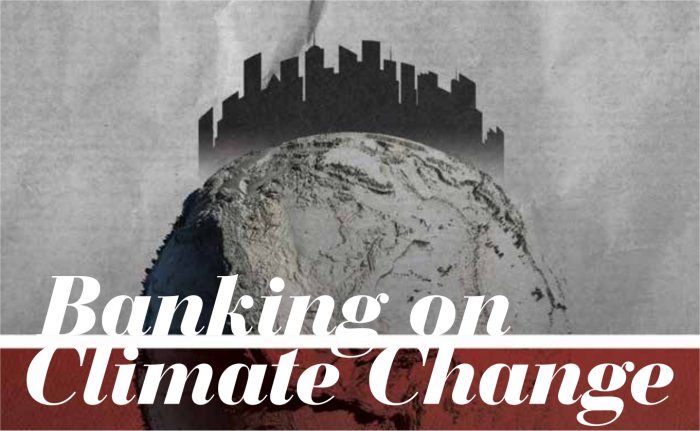
A report released last week reveals the world’s big banks increased “extreme” fossil fuel financing last year, but there was a glimmer of silver lining on the coal black clouds hanging over Australian banks.
The report, Banking on Climate Change 2018, ranks 36 major banks on their policies and financing of carbon-intensive, financially risky and environmentally destructive fossil fuel sectors. It says these institutions funneled USD$115 billion into extreme fossil fuels last year, an increase of 11% from 2016.
“Extreme” fossil fuel sectors considered in the report:
- Tar sands
- Arctic oil
- Ultra deep water oil extraction
- LNG export terminals (North America)
- Coal mining
- Coal power
While after the signing of the Paris Climate Accord in late 2015 there was significant drop in bank financing for these sectors, last year an appetite returned to support them. A sector that saw a lot of activity was that dealing with tar sands, where financing grew by 111% from 2016 to 2017 to reach USD $98 billion; making it the most heavily funded extreme energy sector.
As for the number one Wall Street funder of extreme fossil fuels, JPMorgan Chase was given the title (again).
How Did Australia’s Big 4 Fare?
ANZ, NAB and Westpac all received an average grade of “D” for the 2015-2017 period, with the Commonwealth Bank getting a “D-“. With regard to coal power and coal mining (respectively), their grades were:
- ANZ: C-/D
- Commonwealth Bank: D/D
- NAB: D-/B
- Westpac: C-/C-
While the grades aren’t great or even good, the report acknowledges Australia’s four main banks’ overall coal financing has decreased by 75 percent over the last three years.
In December last year, National Australia Bank announced it had ended funding for new thermal coal mining projects. NAB was also the first of the Big 4 to distance itself from potentially funding Adani’s Carmichael coal mine project in Queensland’s Galilee Basin – before the company had even approached NAB’s door.
“Adani has dragged its reputation through the mud in Australia, and potential financiers have expressed one of the most universal and unambiguous expressions of aversion to a project,” states the Banking On Climate Change report.
The figures in the report indicate that with the exception of Westpac, the other Australian Big 4 members all provided less finance to extreme fossil fuel projects in 2017 compared to 2016. For Westpac, it increased from USD $64 million in 2016 to USD $212 million in 2017.
Here’s how the other banks stacked up 2016 vs. 2017 (USD)
- ANZ: $536 million / $289 million
- Commonwealth Bank: $220 million / $182 million
- NAB: $144 million / $34 million
Banking On Climate Change (PDF) is the ninth annual report in the series ranking bank policies and practices.

 RSS - Posts
RSS - Posts



Speak Your Mind